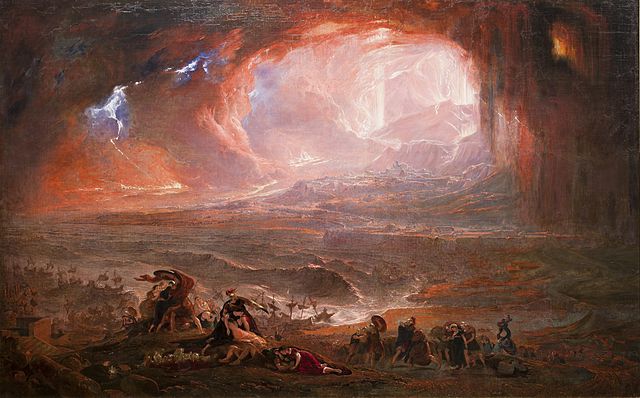Volcanic Insight: Food, Wine And Vesuvius
Perhaps the most famous volcanic eruption that affected world food was that of Tambora in 1815. It is said to be the most powerful volcanic eruption in human recorded history. The following year was called The Year With No Summer and it caused crop failures and famines in many parts of the world. There are no doubt policy lessons that can be learned from this terrible, but natural event, but there is an even more famous, but much less powerful eruption, that definitely does contain some warnings that policymakers may one day need to heed, though it probably won’t be because of a volcano.
Some two thousand years ago, the area of Pompeii was a vital producer of wine for Rome. Wine was incredibly important in the lives of Romans, and not just rich ones as was the case in Classical Greece. The Romans democratised wine and spread it far and wide. They loved it and they consumed a lot of it. Thus, when Mount Vesuvius erupted in AD 79, it wasn’t just a catastrophe for those killed in the eruption, at least 1,500 people, and probably many more since it buried several cities, including Herculaneum (pop. ca. 5,000) and Pompei (pop. ca. 11,000), in up to twenty feet of volcanic ash, it was also a disaster for Roman wine supply.
As a result, many Roman people panicked and extirpated their food crops in order to plant vineyards. Not surprisingly, the result was a glut of wine and a major shortage of food. Eventually, the emperor Domitian in AD 92, issued an edict which “banned the planting of vineyards in Italy and ordered the uprooting of half of the vineyards in the Roman provinces”.¹
There are several policy lessons that might be learned from the whole sad affair.
First, Vesuvius was known to be a dangerous volcano, having only 17 years earlier erupted causing damage to Pompei, which had still not all been repaired by the next and terminal eruption. There were also numerous earthquakes, including just before the major eruption, but the local inhabitants were used to such tremors and ignored them. Lesson one: it is often very hard to know what is signal and what is noise when it comes to warnings, who is crying wolf, and who is telling the truth, but if you live in a dangerous zone, blithely ignoring danger signals is not a good idea. Thanks to human foolishness, we now all live in the danger zone.
Second, it is important to get our priorities right. Many people, including me, consider wine to be a delicious and wonderful thing, but if there is a forced choice between staple diet and quaffing wine, then the latter will have to go.
Third, people panic very easily. We may be moving into an age when there is a lot more to panic over, including shortages of energy and food. There are people in Britain at this moment who don’t have enough to eat and are freezing in the dark; this must be considered an abject failure of government. Many people in the West have grown used to an unlimited supply of food, but this supply comes at a huge cost and is hugely complex. Such systems don’t always fare well when there is a major shock.
I don’t know why the emperor waited so long before bringing in measures to counteract the public’s unfortunate actions, but it is the job of government to model different scenarios, not just ones of easy and endless growth. Emperor Domitian did not have our complex monitoring systems nor the huge wealth of knowledge we now have about how humans and nature behave; to give him the benefit of the doubt, he was probably doing his best. The question for us is, are we also doing our best?
1. Neel Burton, The Concise Guide to Wine and Blind Tasting, Second Edition (2017)

